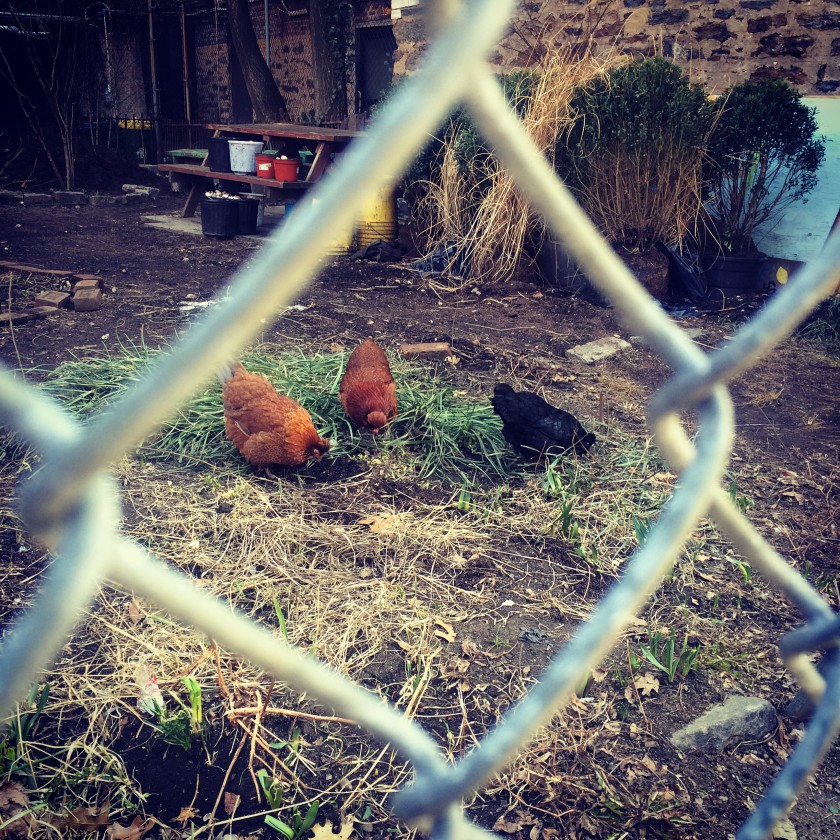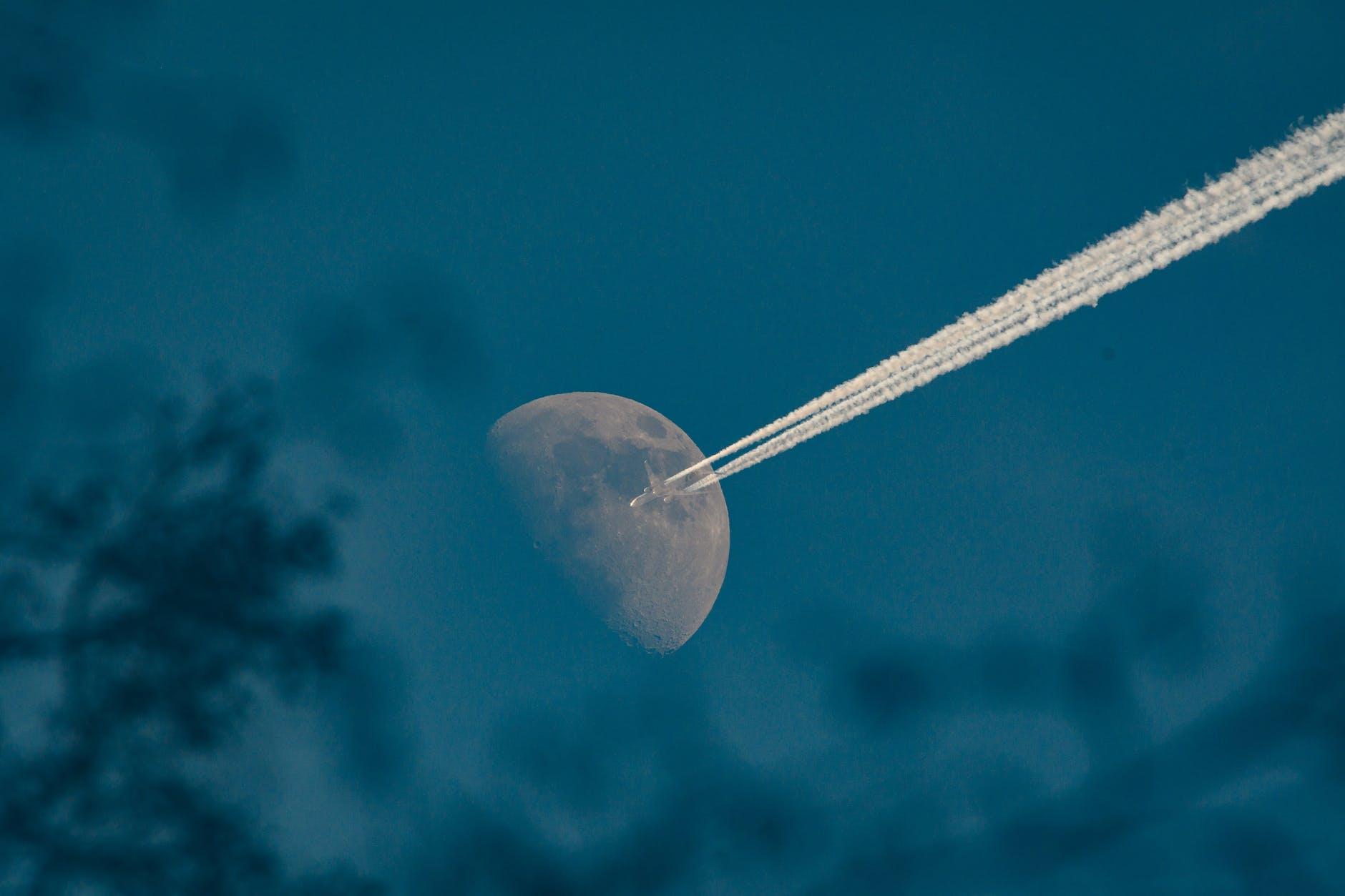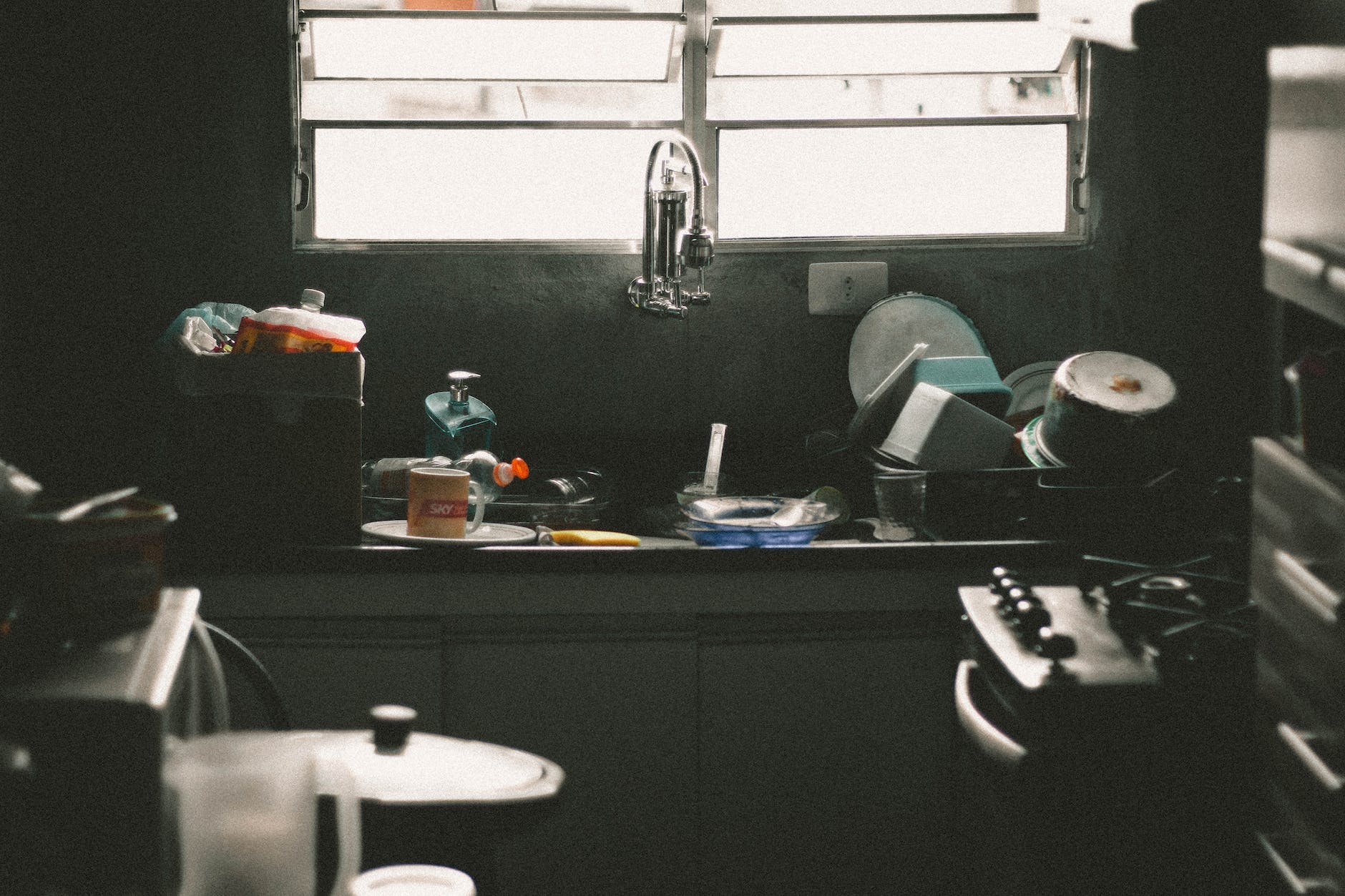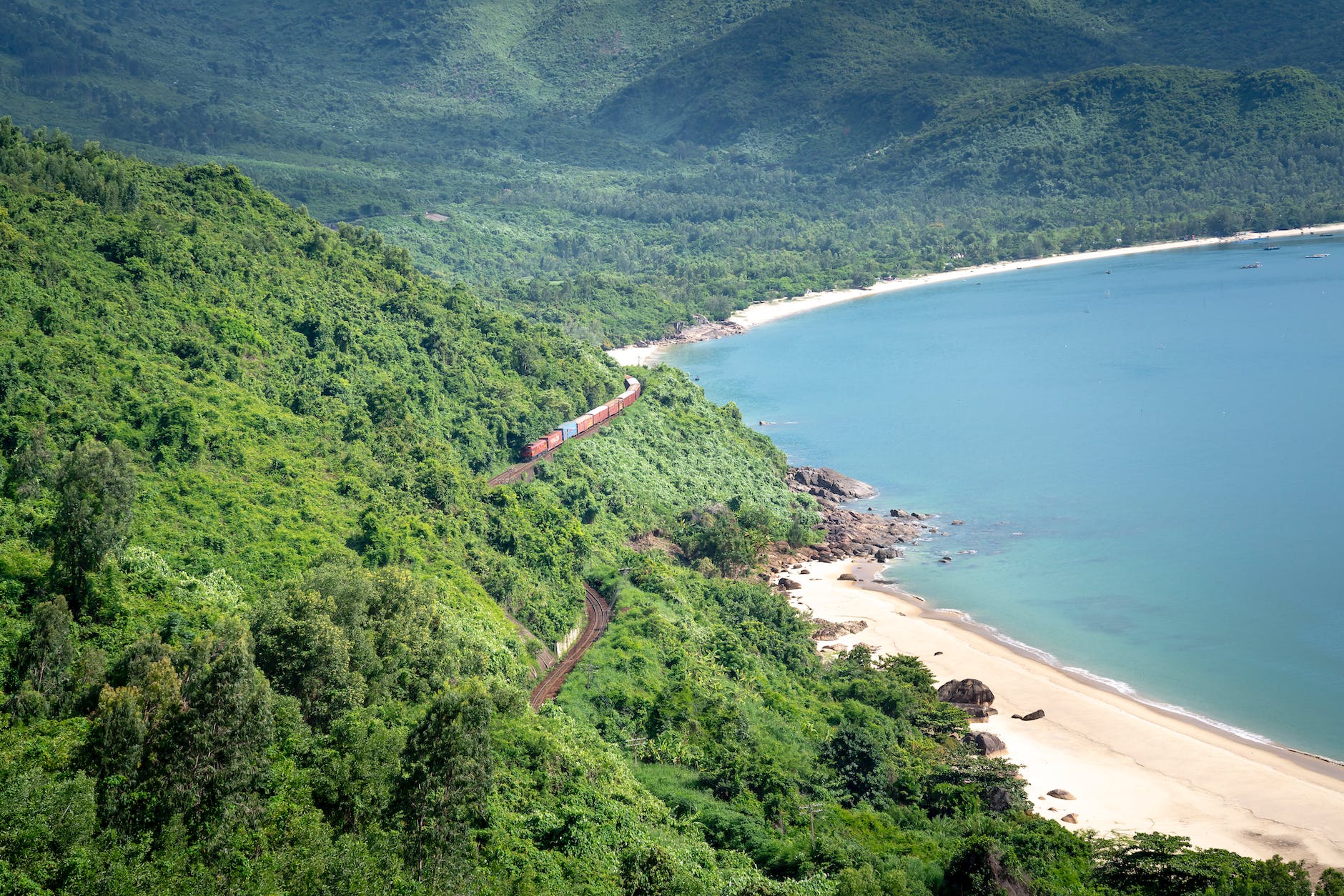Cause for Alliance
By Michael Onofrey
Perhaps it’s the occasional vacant lot that retains the desert’s dull creosote, or maybe it’s the grit that peppers the sidewalk and crunches beneath his sports shoes, or perhaps it’s the RV parks and self-storage. It might even be the gaudy women who prance at night. Traffic moves with indifference. He senses despair.
*
The counter that separates the kitchen from the dining room has a small flat-screen TV on it that’s tuned to the news, Greece and its economic woes. To Jim’s ears the TV is distracting because he’s having a conversation with his wife, Kristine. Jim wants to turn the set off, but he doesn’t do that because Kristine claims that the sound of the television is a comfort even though she might not be paying too much attention to it. When she’s in the kitchen or in the dining room she likes it to be on. Kristine and Jim have discussed this, and it has provoked argument. Jim doesn’t want an argument right now.
Kristine, at the kitchen sink, is peeling potatoes, and she is remarking, “Just goes to show what I’ve said all along. Wayne is totally soft between the ears.”
After a lifetime of rangy, Jim is now skinny. He raises a ceramic mug to his lips and sips coffee that’s on the verge of tepid, but this hardly matters because he knows he’ll continue sipping, as need be. The coffee and its cup allow for gesture and pauses and thought. Also, the cup and its coffee can serve to cloak nervousness or irritation. Kristine is wearing a muumuu, hibiscus on a lavender background. Kristine is stout, but she wasn’t always this way.
“Sold his pickup truck, huh?”
“Yeah.”
Jim’s through with sipping. The “yeah” is easily managed. Greece was where he and Kristine first met . . . a long time ago.
“What for?”
“For the same reason, or reasons, as the rest of it. He’s downsizing, you know, reducing his expenses, simplifying things. He doesn’t get much Social Security, so this way he can manage. That was the whole idea of moving. I think I might have mentioned this before.”
“Gives up a house in the Valley for a trailer in a trailer court?”
“Yes, but he terms it a mobile home park, and he terms the trailer a single-wide. You know, a double-wide would be twice as wide.”
“I know that.”
Jim sips his coffee. Greece, Palaiochora, southwestern coast of Crete. Wayne and Jim, and then there was Kristine and Phillis—a nude beach.
“Since it’s only him, he only needs a single-wide. A resale. The trailer, or mobile home, was lived in before, so he bought it secondhand for practically nothing. I might have mentioned that, too. It was already spotted in the mobile home park. As Wayne put it: ‘All I had to do was move in.’ He paid cash for it. No mortgage.”
“No mortgage, huh?”
“Yeah. What with selling the house in the Valley, he could pay for the whole thing straightaway and put a little something in the bank as well.”
“So what are you trying to say, Jim?”
“Well, I’m just telling you about this.”
Kristine stops with the potato peeler to look at Jim. Jim shifts his weight. He’s standing at the counter where the flat-screen TV is, news about Greece droning. Kristine’s eyes are blue. She’s wearing glasses. Jim is wearing glasses too. Jim’s eyes are brown, face long, forehead high, hair thinning. He’s in a pair of safari shorts, lots of pockets. His legs are white. A pair of “room shoes,” gray in color and purchased at Uniqlo, are on his long feet, which means he’s wearing slippers, no socks.
Wayne was already in Europe, Greece to be exact, whereas Jim was in the finishing stages of college, which meant that Jim’s sojourn was a summer-in-Europe deal, whereas Wayne was committed to something else. They rendezvoused on Corfu, where Wayne was working construction, illegally, a cement mixer and a shovel, four dollars a day. That ended with Jim’s arrival. They took off across northern Greece. Three weeks later they were on Crete.
“So how does he get around?”
“Well, there’s the bus system, which he says is functional as opposed to what we have here in L.A. And he can walk. He told me he’s got this red wagon.”
“He told you?”
“Well, yeah. I talked to him the other day when I was at Starbucks. I figured I’d give it a try. Pushed his number in on my cell. He picked up on the third ring.”
Kristine drops the peeled potato into a pot of water and picks up an unpeeled potato. The windows in the house are open, mid-October, sunset in progress, yellowish sunlight slanting in from a window that’s just above the sink where Kristine is peeling potatoes. Kristine’s hands and forearms are illuminated. Her wrists are thick and her wristwatch is buried in pale flesh, but the sunshine is blushing that skin.
“He did, huh?”
“He’s got himself a cellphone. He texted me the other day to give me the number. Didn’t I tell you?”
“No.”
Kristine and Phillis were like Jim, college-vacation jaunt in Europe, but unlike Jim and Wayne, who were from Los Angeles, San Fernando Valley, eastern sector, Kristine and Phillis hailed from the San Diego region, El Cajon, about a hundred and twenty miles south from where Jim and Wayne grew up. Nevertheless, it seemed that coincidence was at work, for they all spoke the same argot. The only proverbial fly in the ointment was Phillis’s disinterest in Wayne. But Wayne was a good sport about it, for he was already in the midst of heartbreak, of which Phillis couldn’t add to. Thus their tango was “platonic,” nomenclature somehow fitting, Greece and all. Kristine and Jim, though, bunked up in a hurry. After ten wonderful days and nights in Palaiochora, Jim and Kristine and Phillis got on a bus, destination Chania, where the three of them would board a ferry headed for Piraeus, an overnight cruise. Wayne, though, wouldn’t be taking that route, at least not right then. Wayne’s fate had him standing in the roadway, waving goodbye to the bus with its all-over-the-body-tanned passengers. Jim can still see it—Wayne on that damaged pavement where Europe ran out at the Libyan Sea.
“Yeah, well, his single-wide is at the back of the mobile home park. It’s in an add-on section that has a lot of vacancies. There’s a chain-link fence in back of his trailer, and on the other side of the fence there’s the desert. He’s seen coyotes walking the fence line at dusk, you know, on the desert side.”
“Oh, really.”
The evening’s meal: mashed potatoes, leftover chicken warmed in the microwave, a side of deli-bought coleslaw, and a big fruit salad that Jim will set to work on after the peeled potatoes go on the stove to cook. A dash of olive oil will dress the fruit. Fiber has become important.
“It’s kind of neat, according to Wayne. There’s also a roadrunner that he sometimes sees from his breakfast-nook window and from the patio that’s next to his trailer. There are doves. At night he can hear owls.”
“Okay, I’m getting the picture.”
Bus pulled away, day heated up, Wayne stood in the middle of that vacant road, waving, and then not waving just standing. The next time Jim saw Wayne it was thirty-two years later when Wayne showed up in L.A., the old neighborhood no less, to take care of his aged mother who was ill and who still lived in that same house that Wayne grew up in, house around the corner from the house Jim grew up in.
“Well, I was kind of like thinking—”
“You were kind of like doing that the other day, too, when you were lecturing about expenses and about getting old and about driving and so forth and so on. We ain’t moving. We ain’t even considering moving. We’re fine right here just the way we are. Your friend, Wayne, never grew up. You know that.”
*
Boulder Highway, and even though commerce has the look of vigor an element of miscarriage lingers. During the hot months he was out here at twilight or at night, threat of heatstroke credible, but now, with gorgeous weather prevailing over southern Nevada, he’s out here during the day.
Eastern fringe of a famed metropolis, he feels neither discomfort nor disappointment. Occasionally, though, there’s boredom.
*
Jim sips his coffee and persists. “He pays rent for the single-wide’s space, and then there are utilities, which, particularly in the case of water, hardly come to anything compared to what he was paying in L.A., you know, for maintaining that house in the East Valley that his mother left him, which, if you think about it, was a lot less than what we’re paying at this end of the Valley for homeowner’s insurance and property tax, and that’s not even counting the security service we pay for.”
The news about Greece has ended. A commercial is on.
“We worked for it and we can afford it, and the reason we can afford it is because we went out and got ourselves adult jobs, mature careers, and then stuck with them for thirty and forty years, while also raising a couple of kids. Wayne never sullied himself with such mundane responsibilities.”
“What do you mean? He took care of his mother for two years, the two years before she died, and that couldn’t have been easy. She was suffering from dementia and other ills.”
“He was sponging off her.”
“He was working, working those two years, and then the next ten after she passed away.”
“Oh yeah—housepainter-slash-handyman-slash-weed-clearing-slash-clean-up, as in hauling things to the dump or a recycling center, and then, of all things, he gets into so-called chaparral gardens, drought-resistant plants and decomposed granite and whatnot, which was his way of trying to cash in on the drought. If I recall, you tried talking me into that, too.”
The commercials have ended. A weatherwoman is on the flat-screen. Kristine dries her hands on a towel and goes over to a light switch. A fluorescent flicker precedes full illumination. At the kitchen window daylight is fading.
“He did it up legal, which meant that in addition to income tax, he put into Social Security, and since he was self-employed he had to pay as both employee and employer. That was quite a hunk. In addition, there was private health insurance. He was working seven days a week.”
“Yes, but he never had to go to a real job interview, or obtained any sort of qualifications or credentials or licenses, never made any investments or commitments . . . did he?”
*
He pulls a red wagon, the sort of wagon that children put to use as a toy. A small Igloo cooler is in the wagon along with a couple of canvas tote bags and a couple of bungee cords and a cable with a tubular combination lock. A faded red cap without logo or advertisement is on his head, a billed cap. A long-sleeved shirt, light cotton, protects his arms from direct sunlight. Loose khakis hang from his hips.
*
“No more automobile insurance, no more upkeep on the truck, no more gasoline, and no more worrying about getting in a wreck.”
“He’s doing what he’s always done—sidestepping responsibility.”
*
The red wagon is loaded up and the day is further along. He pulls the wagon up a ramp, wheelchair variety that leads to a landing that’s before the front door of his domicile. He opens the door and a cat greets him.
He found the cat near his “resale” mobile home the day after he moved in. It was out in the grueling heat, stumbling around. He asked his neighbors, but no one claimed it, so he claimed it. Or maybe that calico kitten claimed him. They bonded instantly as if loneliness were cause for alliance.
*
Jim is at the counter next to the sink. Kristine, mug of coffee in hand, is at the counter that separates the kitchen from the dining room, flat-screen TV not far from her elbow. They have traded places. A game show is on.
“Is he still going to AA?”
“I don’t know.”
Honeydew melon, pear, apple, avocado. A cutting board and a knife and a large bowl. A practiced routine. Jim’s on automatic, but for the conversation.
“He must be lonely out there.”
“Maybe.”
“What do you mean, maybe?”
“Well, he was seeing a woman here in L.A. for a while.”
“Yes, a woman who was interested in watercolors and drawing like he is, another dead-end endeavor.”
“Actually, she taught art at a college. Northridge, I think.”
“That ended, though, right?”
“I think so.”
“He has always struck me as lonely. Even in Greece all those years ago, that’s what he looked like—lonely. And then when he came back to L.A., and was over here with his mother that one Christmas Eve, it was even more so—the epitome of loneliness. I was tempted to ask him to leave.”
A plastic bag for discards is near the bowl where the salad is taking shape. Something in the exchange catches in Jim’s ear. The knife stops.
“What exactly does loneliness look like?” Jim asks.
*
The single-wide was not only termed a “resale,” but a “handyman’s special” as well, which meant “as is.” He took the remains of a shredded canvas awning down and disassembled the piping. This left him with an unobscured view of the sky as viewed from his patio. In the late afternoon there is shade, for the slab of concrete termed a patio is up against the east side of his trailer.
He sits at a wooden table, cat stirring at his ankle. It’s quiet. There’s no wind. His nearest neighbor is three vacant trailer spaces away. The mobile home park caters to the elderly, also known as the retired – Social Security and Medicare, canes and wheelchairs and mobility scooters. In the community room two coffee urns reside on a Formica-topped table. No swimming pool, no hot tub, no green lawns. Here and there a smoke tree offers wispy shade.
Eastern Mojave—arid. Autumn days with sharp shadows and brilliant skies. Something about his childhood in the San Fernando Valley comes to mind, not desert, but chaparral—semi-arid. And then Greece, Mediterranean dry, yellow grasses on rock-studded slopes, olive trees silvery.
Desert—Mojave, Sahara, Negev, Thar.
![]()
–
Michael Onofrey grew up in Los Angeles. Currently he lives in Japan. His stories have appeared in Cottonwood, The Evansville Review, Natural Bridge, Road to Nowhere and Other New Stories from the Southwest (anthology, University of New Mexico Press, 2013), Terrain.org, and Weber – The Contemporary West, as well as in other fine places. A novel, Bewilderment, is forthcoming from Tailwinds Press in 2017.
–
March 9, 2016
Photo by: Gessy Alvarez



